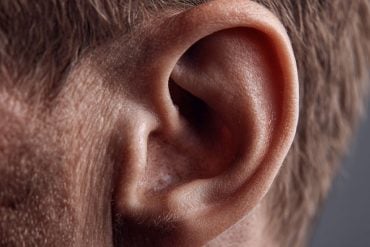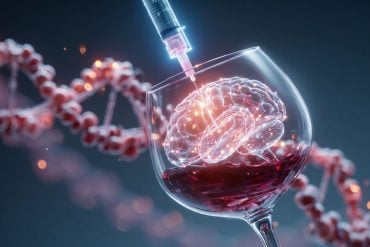Summary: Researchers reveals significant associations between social isolation, loneliness, and detrimental food and eating behaviors, uncovering the intricate relationship between emotional well-being and dietary habits.
The study, involving 29 research papers, found consistent evidence that loneliness correlates with poorer diet quality, including lower fruit and vegetable intake and higher consumption of energy-dense-nutrient-poor foods, both during and outside COVID-19 lockdowns. This research highlights the importance of considering social factors in dietary guidance and suggests that improving social connections may enhance nutritional intake and overall health.
The findings underscore the need for further research to explore the potential of food and communal eating as strategies to mitigate loneliness and its health implications.
Key Facts:
- 27 out of 29 studies reviewed found an association between loneliness or social isolation and harmful food/eating behaviors, suggesting a link to lower overall diet quality.
- The association between loneliness and poor eating habits persisted during COVID-19 lockdowns, indicating that social isolation impacts dietary choices regardless of the pandemic.
- The review calls for more research to understand the causal relationships and to explore dietary interventions as potential remedies for loneliness-induced poor nutrition.
Source: Queensland University of Technology
Researchers at QUT have investigated the association between social isolation, or loneliness, and food and eating-related behaviors both during and outside of COVID-19 lockdowns.
Dr. Katherine Hanna, Jenna Cross, Amy Nicholls, and Professor Danielle Gallegos from the QUT School of Exercise and Nutrition Sciences conducted the review.
Dr. Hanna said loneliness and social isolation had often been described as “epidemics” with growing evidence of adverse health outcomes, including earlier mortality, cardiovascular disease, dementia, and depression.

“There are multiple plausible pathways through which loneliness or social isolation, food, eating behaviors, and health outcomes could be interrelated,” Dr. Hanna said.
“Some have directly connected the relationship with suggestions that people might eat to alleviate loneliness.”
“And more broadly, loneliness has been identified as a component of emotional eating.”
Professor Gallegos, who is the Chair of the QUT Centre for Childhood Nutrition Research, said conversely, food and eating could well influence loneliness/social isolation.
“Eating with others has deep social and cultural significance and has multiple possible benefits, including improved nutrient or food intake,” Professor Gallegos said.
“Dieting and other food restrictions also could reduce the ability to bond with others over food.”
“But it is not clear if there is the evidence to support these links.”
Dr. Hanna said it was for those reasons that the research team felt they needed to conduct the review to explore the available evidence that investigated the association between social isolation or loneliness and food and eating-related behaviors—both during and outside of COVID-19 lockdowns.
“27 of the 29 studies that met the eligibility criteria found at least one association between loneliness or social isolation and one or more food/eating behaviors that would usually be considered harmful to health,” Dr. Hanna said,
“These included lower fruit and vegetable intake, higher intake of energy-dense-nutrient-poor foods and lower overall diet quality.”
“Eight of the studies were conducted in COVID-19 lockdowns, and most of the results suggested the association between loneliness or social isolation and food/eating behaviors had usually remained when people were in lockdown circumstances.”
Dr. Hanna said some of the evidence had provided insight into the possible underlying reasons.
“For example, through consideration of the role of food and meals as strategies to minimize loneliness and the impact of eating alone on loneliness,” Dr. Hanna said.
Dr. Hanna said caution in the interpretation of findings was needed due to the range of measures used to assess both loneliness or social isolation and food and eating behaviors and the inconsistent use of validated tools.
“Most studies only assessed a single point in time, so cause and effect cannot be determined.”
Professor Gallegos said the findings indicated the possibility that part of the observed relationship between loneliness or social isolation and health could have been due to eating behaviors, justifying the need for further research to provide better evidence.
“But the results found in this paper could be of relevance to multiple groups, including policymakers, health professionals, and consumers,” Professor Gallegos said.
“The results could be of particular interest to dietitians and nutritionists who need to consider the potential impact of loneliness or social isolation on food choices.”
“But also, this review highlights to members of the public the possible importance of loneliness and social isolation influencing food and eating behaviors and the use of food to ameliorate loneliness and may help provide insight into personal choices.”
Dr. Hanna said overall, the review illuminated the interconnectedness of food and eating with social and emotional well-being.
“And it highlighted that addressing food behaviors needs to consider the complex matrix of factors that influence food intake,” Dr. Hanna said.
“Further research on this topic could allow for a clearer understanding on how to apply the findings in practice and the role of food and eating in the relationship between loneliness or social isolation and health outcomes.”
About this psychology and diet research news
Author: Pat Whyte
Source: Queensland University of Technology
Contact: Pat Whyte – Queensland University of Technology
Image: The image is credited to Neuroscience News
Original Research: Open access.
“The association between loneliness or social isolation and food and eating behaviours: A scoping review” by Katherine Hanna et al. Appetite
Abstract
The association between loneliness or social isolation and food and eating behaviours: A scoping review
Loneliness or social isolation and food/eating behaviours have important health consequences and there are rationales for why they could interact.
Loneliness and dietary behaviours are recognised as health determinants and targets for interventions at individual, group and population levels. However, there are currently no research reviews investigating associations between these areas.
This scoping review synthesized evidence investigating loneliness or social isolation and food/eating behaviours in people aged over 16 years in high-income countries. A systematic search of five databases from 2000 was conducted using predetermined search terms.
Dissertation database and backwards citation searches were also conducted. Full text screening of 254 articles/theses resulted in inclusion of three qualitative and 26 quantitative studies, with eight conducted in COVID-19 lockdowns.
Almost all studies reported a relationship between loneliness/social isolation and eating behaviours usually considered harmful such as low fruit and vegetable intake and lower diet quality.
Qualitative research also supports the detrimental influence of loneliness or social isolation on eating. Study quality was considered, and interpretation and comparison of results was complicated by use of varying methods.
Better awareness and understanding of the relationship between these complex aspects of health is needed to inform the development of interventions and practice of nutrition and mental health practitioners, policymakers, researchers and end-users.






